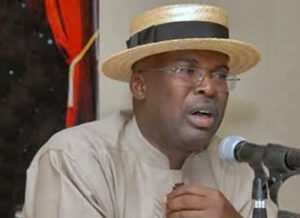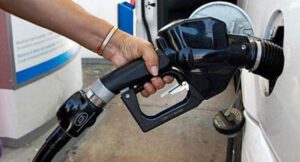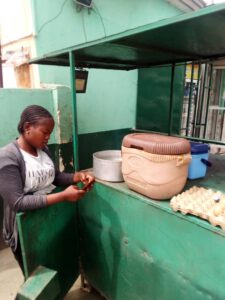By Gabriel Atumeyi
Last week, Nigerians across states in the federation were faced with hardship occasioned by scarcity of petrol in filling stations. The scarcity followed an advisory released by the Petroleum Products Pricing Regulatory Agency (PPPRA) that the price of fuel should be increased to N212 per litre from the N163 it was selling for.
As the filling stations rushed to hoard available products and in areas not close to major cities, adjusted their metres to reflect the new recommended price, transportation fares saw an instant hike, and passengers had to endure long hours of wait for taxis and buses to convey them to their various destinations.
But the misery was short-lived, so to speak, as the long queues gradually fizzled out after Nigeria’s Minister of State for Petroleum Resources, Timipre Sylva, denied that the price of petrol had been increased from N162/litre to N212.

*Sylva
The Minister, in a statement read to journalists in Lagos, also apologised to Nigerians for what he described as ‘unfortunate misinformation’, while also warning retailers not to take undue advantage of the misinformation, irrespective of its origin.
The statement read: “Dear Nigerians, you are by now very aware of the news trending that the federal government has increased the price of petrol to N212/litre.
“Irrespective of the source of that information, I want to assure you that it is completely untrue.
“Neither Mr. President who is the Minister of Petroleum Resources, nor myself who deputises for him as Minister of State has approved that the pump price of petrol be increased by N1.
“I will therefore urge you to disregard this misleading information.
“We are all aware that for the past few months, the government has been in consultation with organised labour to find a lasting solution to this problem.
“The price of crude oil has gone up, which might inevitably lead to price increase at the pump, but this cannot happen before the negotiations with labour and all stakeholders has been concluded.
“I will equally like to assure you that the engagement with organised labour and other stakeholders will continue, even as the calculations to arrive at a reasonable price are on going.
“All in good faith, and you will be avail of the final outcome by the appropriate time.
“Until then, all marketers are strongly advised to maintain the current pump price of PMS despite the emergence of this unfortunate information.
“Those who may want to take advantage of this unfortunate misinformation to extort Nigerians should not give in to such temptation, as there are regulatory mechanism that government can enforce to protect its citizens.”
A taste of things to come
The Minister also pointedly reassured Nigerians that there would be no hike in fuel price for the months of February and March, 2021.
However, it is apparent that the Federal Government is stalling on the fuel price hike. While it has assured of February and March, it has made it clear that an increase in the price of fuel is going to come with the rising cost of crude oil in the international market.

*File photo of fuel being dispensed at a filing station
While the Government dwells on deregulation of the oil sector and how it affects the pricing of petroleum products in the country, the masses are more concerned about its attendant effect the price of goods and services.
”We are in trouble”
365Daily went round town to take the pulse of Nigerians on the street on what a further increase in fuel price would mean to them.
Gambo Abubakar, who works in a rice factory at Bwari Area of Abuja, said any increment in fuel price would be ”disastrous”, and urged the government to address the economic issues in a ”safer and milder way for the people’s benefit”.

*Abubakar Gambo
He said, “Economically, we are in trouble. Because salaries have not been increased but the price of everything has inflated. Tell me how are we surviving. These people are not even doing anything to help the matter. They are even worsening it. By the time the government increases fuel price officially, that will be catastrophic.
“They are not addressing the economic issues, they are adding fuel, which means we cannot eat.
”My concern with the government is that they are not addressing the economic issues.”
For Omotola Sunday, who sells cooked food at Area 1 Roundabout Garage, it seems the government has abandoned Nugerians to their fate. She lamented that the price of foodstuff in the market has been on an upward surge and wondered how struggling masses will deal with further increment.
She said, “Everything is cost. Even before they increased fuel price, things were cost. These days, I can’t afford to buy cow legs because of the cost. If you hear the price of a cow leg, you will be surprised. So everything seems disconnected.
“Everything has already added money before they increased the fuel price. Why are they postponing it, let them put it let us know.
“If they increase it as we have been hearing that they intend to, it will be worst because the situation of this country is something else. A plate of garri is 400 – 500 Naira. So this is not the time to have an increment in expenditure, even having more children. So it is disheartening.”
For Precious Chizoba, a barber at Utako Market area, any increment would be insensitive of the government and an escalation of the current hardship in the country.
“We saw how there have been up and down in the oil prices, with oil marketers and the Federal Government singing discordant tunes. And we know, the Federal Government will increase it and the increment will cause a lot of problems across everything. People will not find it easy.
“Ordinary Nigerians will not find it easy. Perhaps only the middle and upper classes who can obtain what they want whatever the cost and the prices. But for ordinary Nigerians, they will not be able to afford the prices of goods, if the Federal Government ventures to increase the pump price of fuel for the third time.
“The problem is that whatever policy the government is making these days, they don’t consider the ordinary Nigerians – those who cannot afford one square meal a day or have to drink garri to survive.”
For Ibrahim Onubayi, a taxi driver at the Wuse Market area of Abuja, it would be ”malicious” for the Federal Government to increase fuel price with Easter just around the corner, adding that ”only God can salvage the hope of the common man”.

*Ibrahim Onubayi
Onubayi said he felt “the Federal Government cannot increase fuel pump price now because Easter is coming. Because transportation would be too high.
”Nigeria doesn’t have fuel, we usually import our fuel. Nigeria doesn’t have fuel, it is crude oil that we have. So increment depends on the marketers.
”Things have mastered us. Only God can save us. It is they who have power, they can do anything. We are praying that God will help us. It is no longer business as usual. Many of us can no longer afford to eat three times a day and you are forced to adjust your spending, so you can survive.”
Yusuf Suleiman, who also spoke to 365Daily, said Buhari and the APC administration have failed Nigerians and any increment in fuel pump price would be the last straw.

*Yusuf Suleiman
He said: “The government has failed us, especially APC. Don’t you know why they failed us? They said before 2020, Kaduna refinery, Port Harcourt and Warri refineries will be working and fuel will come down. But they failed the economy. Things are high. If you used to take hundreds of thousands of Naira to the market, like last year or two years back, if you took N100, 000 to the market, you will see what you will buy.
“But if you take N150, 000 or N200,000 to the market, you won’t be able to buy much. I don’t think they can further increase the pump price of fuel and if they do it, people will be totally disenchanted with the APC.”
Also speaking to 365Daily, Mrs Lucy Haruna, a retired nurse, said the situation in the country now is dire and any increment in fuel prices would spell doom for majority of people in the country.
She said, ”Things are getting costlier. Things that we used to buy for 400, 500, 550 Naira is now 750, 800 Naira. Even I that used to buy kilo of meat for 1400, 1500 Naira, I now pay 2000 Naira per kilo. Everything is very costly. If they increase fuel price, then we can’t buy anything.
“Beans which used to be 500, 600 Naira is now 750, 800 Naira. Garri that used to be 250, 300 is now 450, 500 Naira. So where are we going? Kings vegetable oil we used to buy for 3,200, 3,300 is now 4500 Naira. So everything has gone up, nothing is cheap in the market.
“The reason things have gone up like this is because when they initially increased fuel, everything went up and now that they have brought down the price, the people selling will hardly bring it down. That is the problem with Nigeria. So if there is additional increase in fuel prices, these businesses will further increase their prices. This is very hard for the masses, and salaries are not increasing. So the common man will be crushed,” Haruna added.
For Mary Ogwichi who sells cooked food in the Kubwa, Phase 4 district of Bwari Area Council, business is failing as she grapples to make ends meet.
She said: “If they further increase the pump price of fuel, Nigerians will suffer because even now, the prices of things are high and even with the current price of petrol, people are still finding it difficult to survive.

“Even the carton of Indomie that used to be two thousand and something, is now 4000 plus. A measuring plate of Garri is now four hundred naira, something that used to be 150 Naira. And we know transportation cost has increased which boils down to everything else.
“I am not making as much gain as before. We are just seeing small things and it is not good to stay at home. So if they increase the price of fuel, some businesses will be forced to shut down. People may even be compelled to resort to unwholesome activities for survival,” Ogwichi said.
All eyes on Labour
As meetings between the Federal Government and organised labour unions to find a mutual ground for the price hike continues, the common Nigerian worker looks up to the unions to convey their plight to the government.
This seems to be the last hope of the masses as their elected representatives at the national and state legislature seem to have abandoned their constituents to their fate.